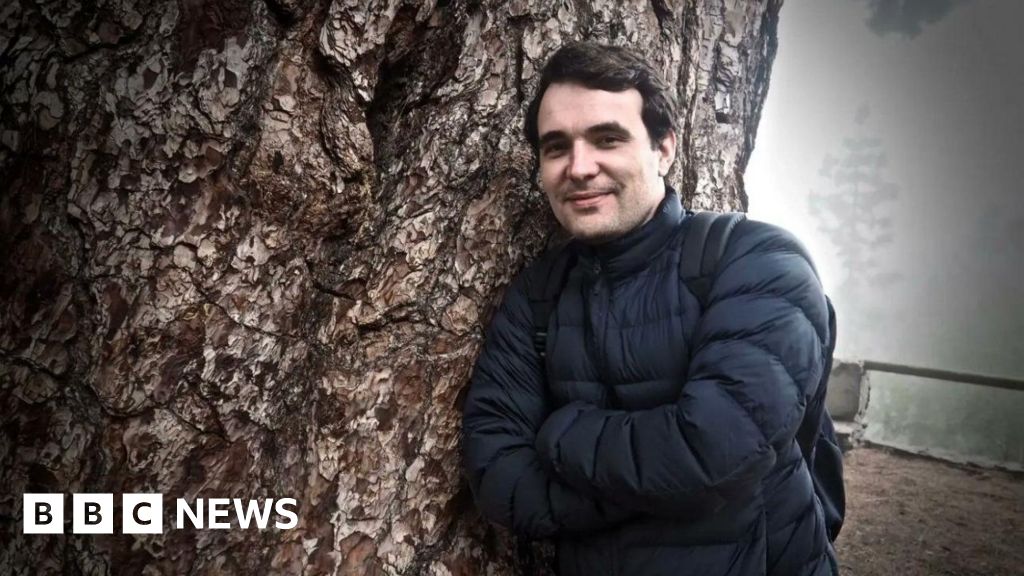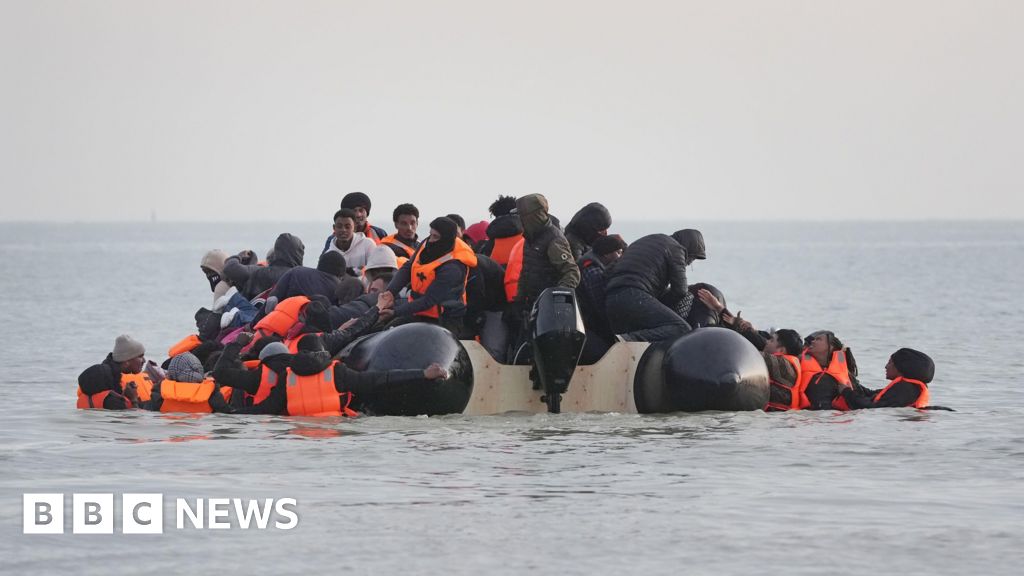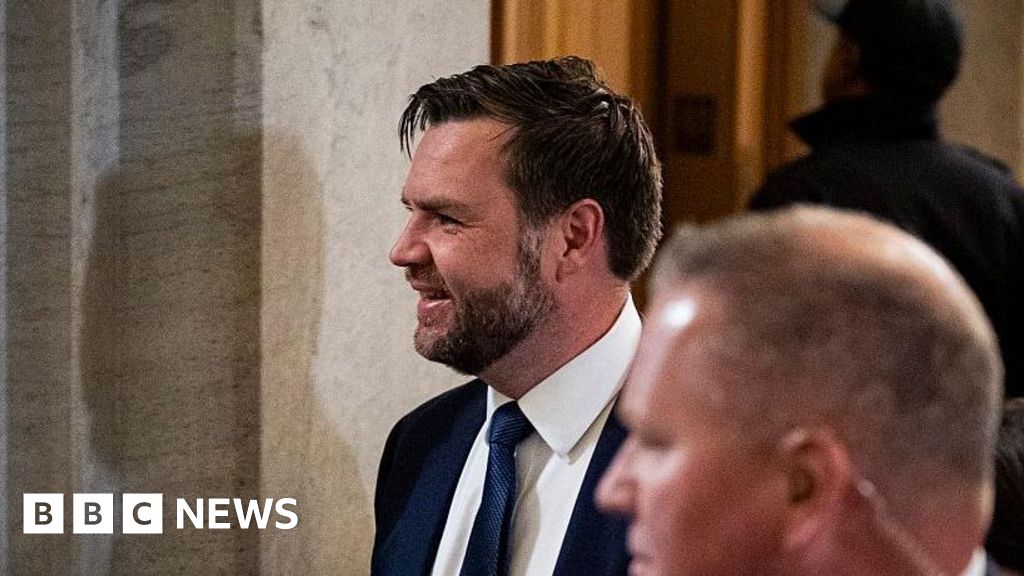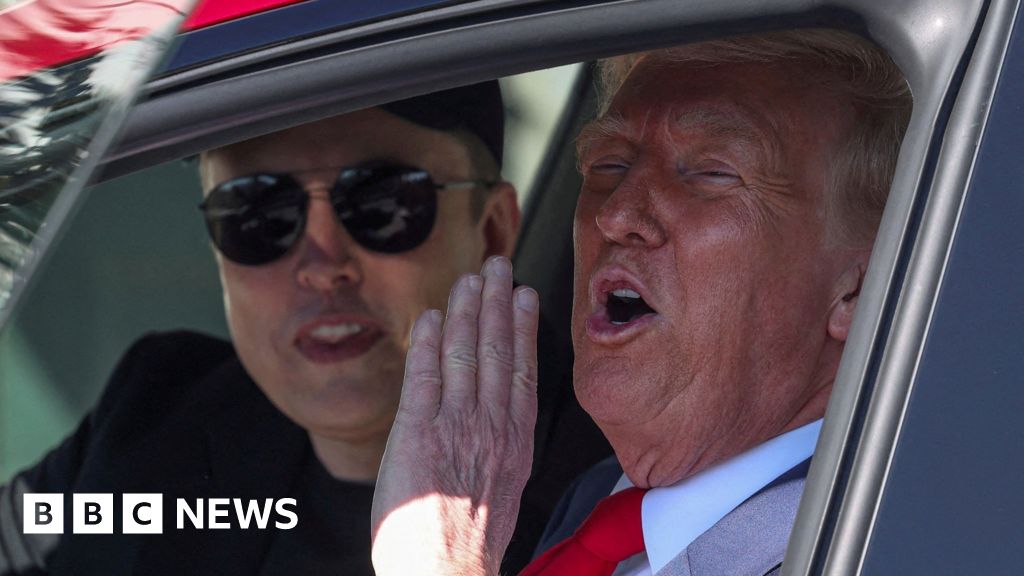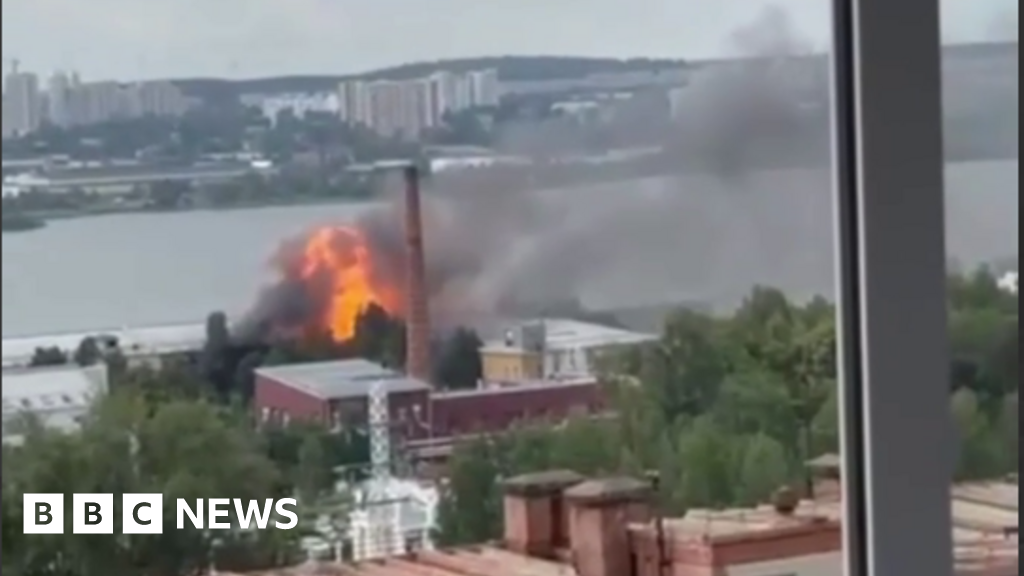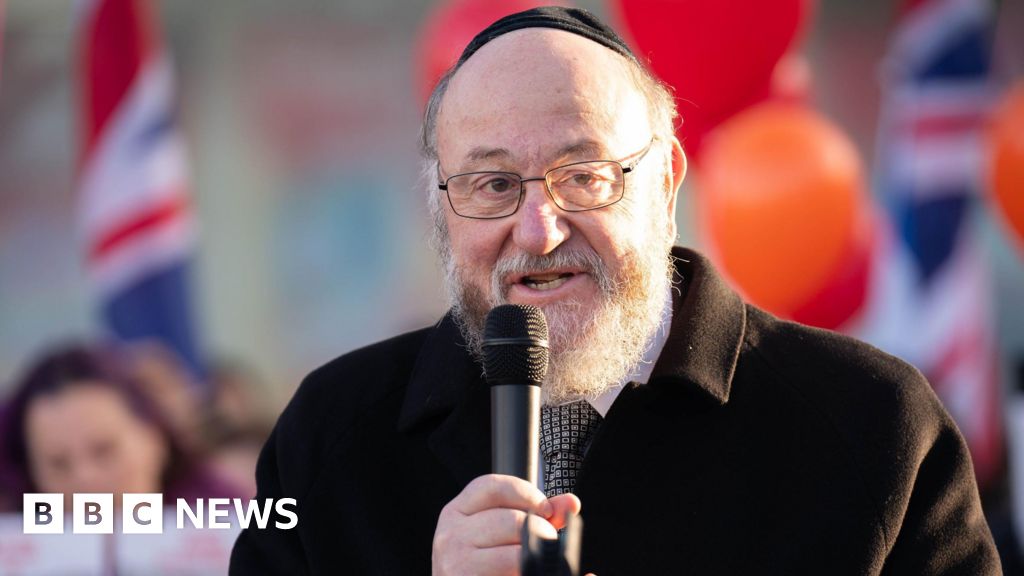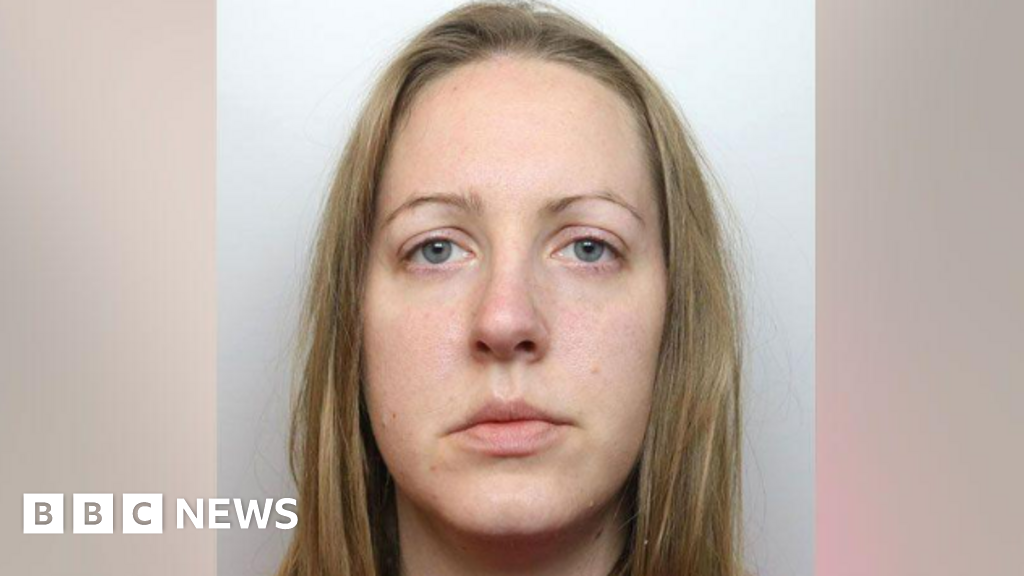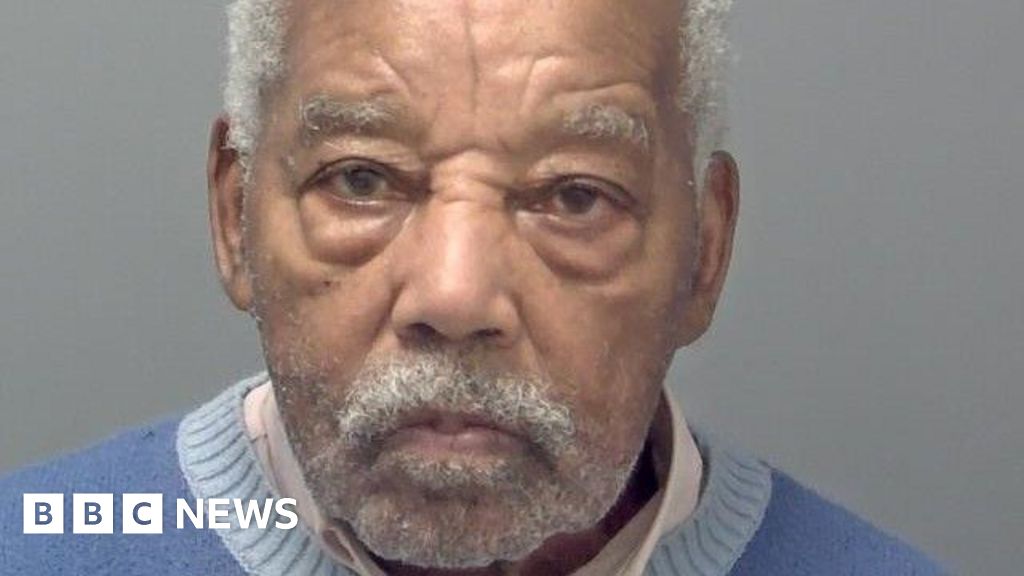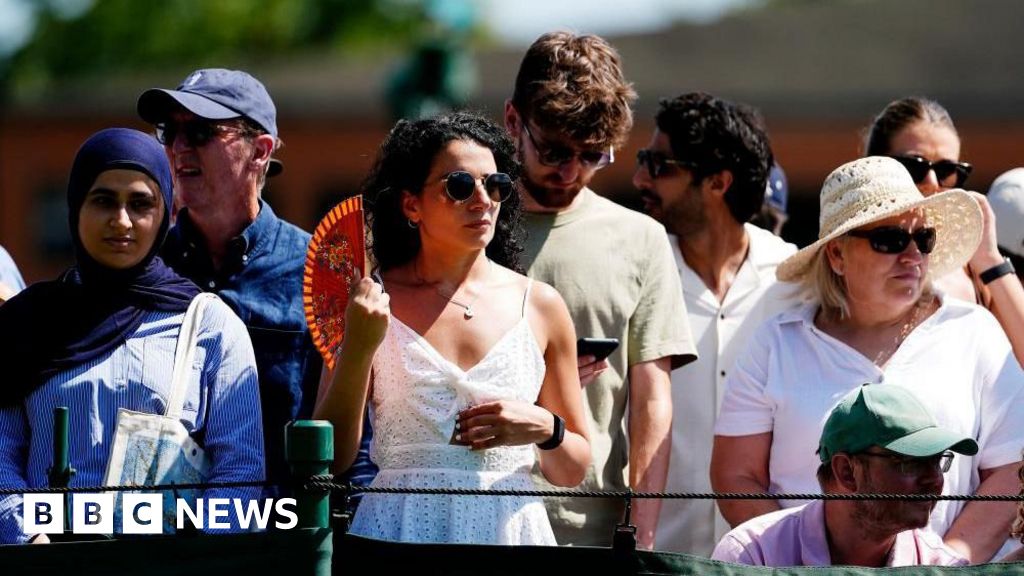Lucy Williamson
BBC Middle East correspondent

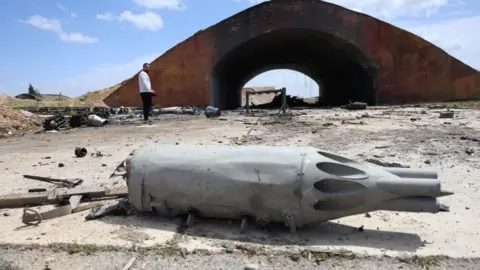 EPA
EPA
Israel has repeatedly carried out air strikes on Syrian bases since the fall of Assad
A growing confrontation between Israel and Turkey over influence in Syria is posing a serious challenge for Syria's fragile new government.
On Wednesday night, Israel bombed several military targets in Syria, including two airports – Hama military airport and the T4 base near Homs.
Syria's foreign ministry said the bombardment virtually destroyed the Hama base. A prominent Syrian human rights group said four defence ministry employees were killed, and a dozen other people injured.
The air strikes hit Syria, but their real target was Turkey.
Shortly afterwards, Israel's foreign minister accused Turkey of playing a "negative role" in Syria, and Israel's defence minister warned Syria's interim president, Ahmed al-Sharaa, that he would "pay a very heavy price" if he allowed "hostile forces" to enter his country.
Ankara is currently negotiating a joint defence pact with Sharaa's new government, and there have been widespread reports that Turkey is moving to station aircraft and air defence systems at Syria's T4 and Aleppo airbases.

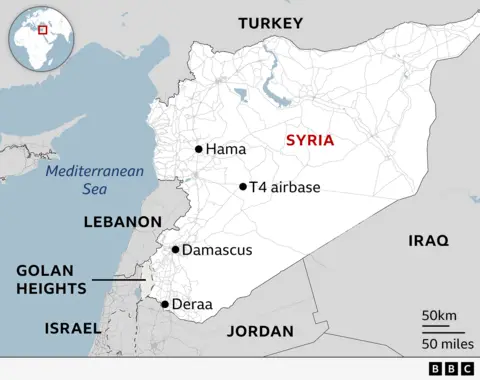
Some analysts compared Israel's intense air strikes on Hama airport this week with the much lighter bombing on the edge of the T4 base, suggesting that Turkey may have already moved some equipment there and that Israel was calibrating its attack to avoid a full-blown escalation.
Relations between Israel and Turkey have nose-dived since the Gaza war began in October 2023, with Ankara introducing trade restrictions and accusing Israel of genocide.
That regional tension is now playing out on new ground in Syria.
After the air strikes on Wednesday, Turkey's foreign ministry accused Israel of destabilising the region by "both causing chaos and feeding terrorism" and said it was now the greatest threat to the security of the region.
But foreign minister Hakan Fidan told Reuters news agency that his country was not seeking confrontation with Israel, and that Syria could set its own policies with its southern neighbour.
Syria's new leader has repeatedly signalled that he was not looking for confrontation with Israel. Soon after sweeping President Bashar al-Assad from power last December, he told the BBC that Syria would not pose a threat to any country.
He has even left the door open to normalising diplomatic relations with Israel in the future, telling the Economist last month that Syria wanted peace with all parties, but that it was too early to discuss such a sensitive issue.
His top priority since taking power has been to unite a bitterly divided Syria, and pacify external relations with its neighbours, while he cements his power and control.
But Israel has not made that easy. Its military interventions in Syria are fuelling conflict with both external powers like Turkey, and with internal groups like jihadists in the country's south.
Once an implacable enemy of Syria's former president and his Iranian ally, Israel is also suspicious of Sharaa, a man who once led the Syrian branch of al-Qaeda and whose new government is backed by Turkey.
Since he took power, Israel's military has repeatedly pounded Syrian weapons stores, airfields and other military sites left by the former regime, to avoid them falling into enemy hands, it says.
It has also occupied a demilitarised buffer zone, set up after the 1973 Arab-Israeli war, and has sent forces onto the Syrian side of a nearby mountain, setting up nine bases across the area.
Israeli troops are also making regular incursions into Syria's south-western provinces, vowing to prevent the presence of any armed groups or government forces there.
Earlier this week, the local government in the southern city of Deraa said nine civilians were killed in an Israeli bombardment, during the deepest incursion there yet by Israeli forces.
Another four people were killed in Israeli shelling near the village of Koya late last month, after local gunmen tried to stop the advance of Israeli forces there.
Since then, mosques in both Deraa and Damascus have reportedly called for jihad against Israeli forces.
Charles Lister, head of the Syria Programme at the US-based Middle East Institute, which studies the region, has counted more than 70 ground incursions into south-west Syria since February, describing this as "an extraordinarily dangerous moment – and an unnecessary one".
Since the fall of Assad four months ago, he says, not one attack has targeted Israel from Syria, the country's security forces have intercepted "at least 18 weapons shipments destined for Hezbollah in Lebanon, and dismantled at least eight formerly Iranian-linked rocket launch sites".

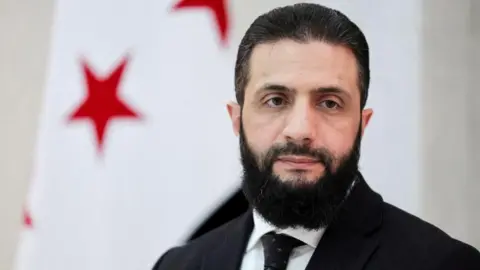 Reuters
Reuters
Syria's interim President Ahmed al-Sharaa is reportedly negotiating a defence pact with Turkey
Many Syrians are disappointed by Israel's response to their new government. They watched for years as Israel targeted the Assad regime, and believed that Assad's fall would bring the chance for a less confrontational relationship with Israel.
Some say that view is now changing.
"We used to believe that the Israeli army was only targeting Assad's regime forces," said Ismail, a restaurant owner in the west of the country. "But its continued, incomprehensible bombings are sadly making us think that Israel is an enemy of the Syrian people."
Syria is vulnerable because its internal divisions are easily inflamed by regional and global interventions. The roots of sectarian conflict run deep here, nourished by decades of repressive rule by the Assad family, members of Syria's Alawite minority.
Ahmed al-Sharaa's attempts to reassure the country's minorities were interrupted in early March by an explosion of violence in Syria's coastal region – a stronghold of the former regime.
At least 1,000 Alawite civilians or disarmed fighters were massacred by pro-government forces, after government units were ambushed in a co-ordinated attack led by remnants of Syria's former armed forces.
Those former armed forces were once backed by Iran. Some analysts believe their remnants may still be receiving some support from Tehran.
Syrians celebrated the fall of Bashar al-Assad as an end to their civil war, and a chance to unite.
But outside powers helped fuel that civil war for more than a decade, and its neighbours are now eyeing the vacuum left by Assad. The risk is growing that Syria will again fall victim to the conflicts of outside powers, played out on Syrian soil.

 2 months ago
69
2 months ago
69


